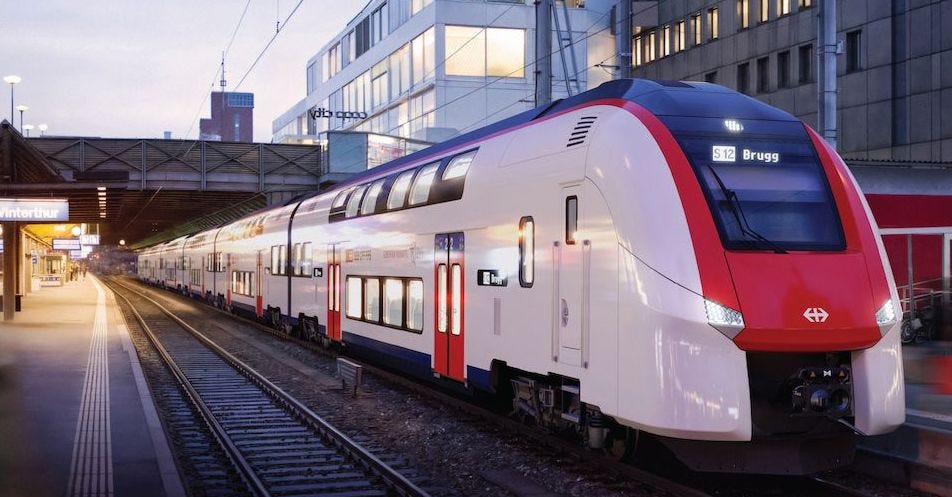SBB picks Siemens — and sparks Swiss anger

Swiss Federal Railways (SBB) has awarded Siemens Mobility a CHF 2.0 billion contract for up to 200 double-deck trains — and triggered the sharpest public clash over rail procurement in recent Swiss history. What began as a routine fleet tender has become a national debate about industrial policy, tax-funded contracts, and whether Switzerland should protect its last domestic train manufacturer.
SBB announced on Friday, 7 November, that Siemens had submitted the “most advantageous offer under public procurement law” for 116 six-car electric trainsets, with options for 84 more. The double-decker trains will be built in Germany from 2028 and enter service from 2031, serving Zürich’s S-Bahn and regional routes in western Switzerland.
SBB cited Siemens’ operational track record with comparable platforms in Germany and the lower deployment risk of technology already proven in high-frequency service environments.
“A black day for Switzerland”
Stadler Rail — Switzerland’s last remaining train manufacturer — reacted within hours of the announcement, issuing an unusually direct statement:
“We are disappointed and surprised by SBB’s decision. It is a setback for Switzerland’s industrial base.” The company went on to say it would now carefully analyse SBB’s reasoning.
The reaction extended beyond Stadler’s official statement:
On LinkedIn, one commenter called the decision “a slap in the face of Swiss industry” — arguing that a multi-billion-franc order financed by taxpayers should have stayed in Switzerland to support jobs, apprenticeships, and local suppliers.
Within 24 hours, the post had drawn hundreds of comments, many echoing the view that state-owned operators should prioritise domestic industrial capacity when public funds are involved.
What SBB calculated differently
While Switzerland is not an EU country, it sits at the centre of Europe’s rail network. And SBB’s choice follows procurement patterns now standard across the EU: predictable life-cycle costs, interoperable technology, and supplier neutrality alongside upfront price and environmental impact.
Switzerland’s public procurement law requires operators to select the ‘most advantageous’ bid, not the domestic one — just like EU member states.
Its a stress test for European procurement logic
Big picture: Across Europe, operators increasingly favour standardised platforms with proven multi-market deployments over bespoke national designs. Fewer variants mean lower costs, faster approvals, and shared maintenance infrastructure.
Quick take: But Switzerland’s debate exposes the limits of the framework. When a state-owned railway uses tax money to buy foreign trains while a domestic manufacturer claims it can deliver equivalent quality, the economic argument meets political resistance — especially in a country proud of its engineering tradition.
Whats next: Stadler’s “we will analyse” language keeps legal options open without committing to a fight. In practice, SBB’s decision is a commercial one, and it would be highly unusual for a Swiss court to force a national operator to reopen it.
But: The question is whether Switzerland’s political system will accept this logic — or demand a different choice between efficiency and economic sovereignty.

